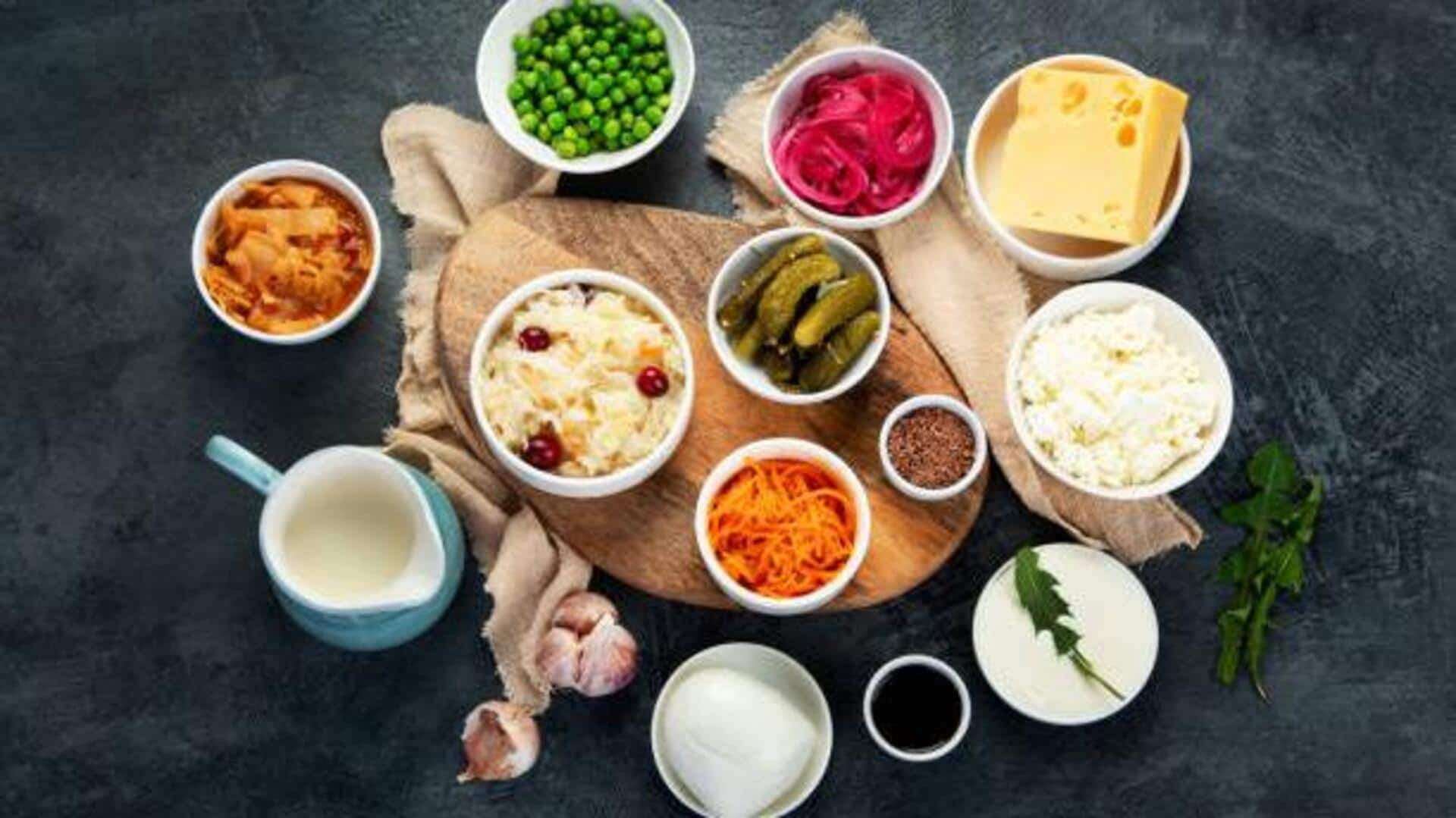
Probiotics and digestion: Myth v/s facts
What's the story
Probiotics are often touted as a miracle solution for digestive health, but the truth is, the benefits of these microorganisms are often exaggerated. While probiotics can help maintain gut balance, they are not a cure-all for digestive issues. Understanding what probiotics can and cannot do is important for making informed choices about gut health. Here are some common myths about probiotics and their real impact on digestion.
Myth 1
Probiotics can cure all digestive problems
Many believe that probiotics can cure all digestive problems, from bloating to irritable bowel syndrome (IBS). However, while probiotics may help alleviate some symptoms by restoring gut flora balance, they are not a substitute for medical treatment or a comprehensive dietary plan. It's essential to consult healthcare professionals for persistent digestive issues rather than relying solely on probiotics.
Myth 2
All probiotics are the same
Another common misconception is that all probiotics are the same and provide the same benefits. In reality, different strains of probiotics serve different purposes and have different effects on the body. Some strains may be effective in improving gut health, while others may not have any effect at all. Knowing which strain you need is important for achieving the desired results.
Myth 3
Probiotics guarantee immediate results
Many people expect immediate results after taking probiotics, but this isn't how it works. Probiotics need time to adjust and populate the gut flora before any noticeable difference can be felt in digestion or overall health. Patience is key when adding these supplements to your routine, as it may take weeks or even months to see significant changes.
Myth 4
Probiotics are only available in supplements
A common misconception is that probiotics are only available in supplement form, like capsules or tablets. However, many foods, including yogurt, kefir, sauerkraut, kimchi, and other fermented foods, are rich in natural sources of probiotics. Including these foods in your diet can be an effective way to boost your intake of beneficial bacteria without having to rely solely on supplements.
Myth 5
More probiotics mean better digestion
Some people think that consuming more probiotics will automatically lead to better digestion, but that's not how it works. Overloading on probiotics can upset the natural balance of bacteria in the gut and may even cause digestive discomfort, such as gas or bloating, in some individuals. It's best to consume them in moderation and pay attention to how your body responds.